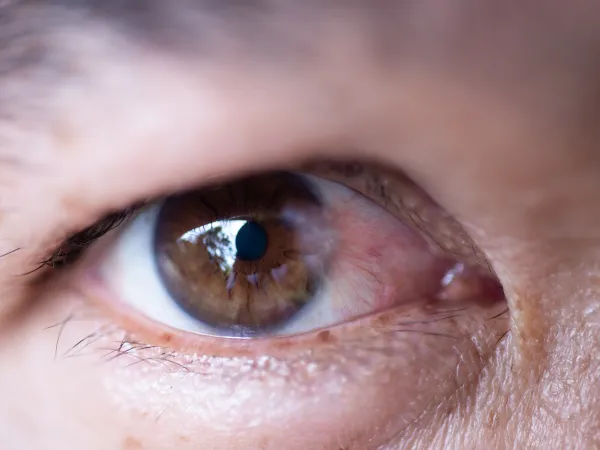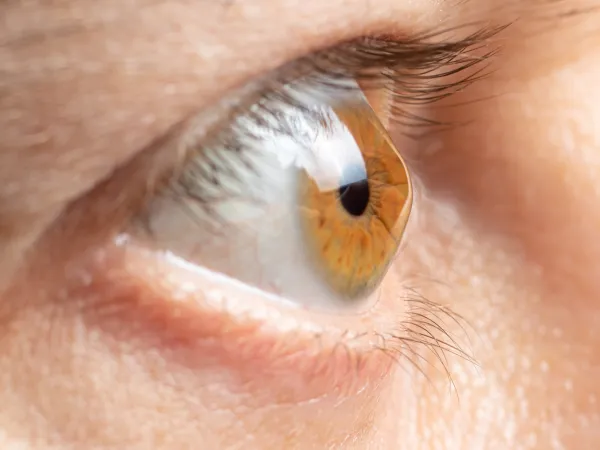Diagnoses
Pterygium
A pterygium is an abnormal growth of the conjunctiva, the thin clear membrane that covers the white part of the eye. This growth can extend onto your cornea, the clear window in the front of the eye. Too much sun exposure can lead to these growths, which is why this condition is sometimes referred to as "Surfer's eye." If these growths are asymptomatic they can be left alone. Associated symptoms may include irritation, redness, or blurry vision. Mild cases can be treated with lubricating eye drops. If they start to affect your vision they can be removed.

Keratoconus
Keratoconus is an abnormal thinning and bulging of the cornea, the clear window in the front of the eye. This disease usually starts in adolescence and progresses through your 30s/40s. With progression the cornea can develop thickening or scarring. Symptoms can include blurry or distorted vision. Risk factors include eye rubbing, atopic disease, and connective tissue disorders such as Marfan Syndrome or Ehlers-Danlos Syndrome. Corneal cross-linking is a procedure to help prevent progression of keratoconus and can be performed early in the disease process. Glasses and contact lenses can help to improve vision. If vision cannot be corrected with glasses or contact lenses, especially in cases of corneal scarring, you made need a full thickness corneal transplant.

Fuchs’ dystrophy
Fuchs' dystrophy is a disease of the inner layer of the cornea, the endothelium. The endothelial cells are responsible for pumping fluid out of the cornea to keep it clear. When these cells are dysfunctional, you can develop swelling of the cornea which can cause discomfort and blurriness of the vision. Patients will commonly report the blurriness is worse in the morning and improves throughout the day. Mild cases can be treated with eye drops. More severe cases require treatment with a corneal transplant. This can usually be treated with a partial thickness corneal transplant but may require a full thickness corneal transplant depending on how advanced the disease is.


